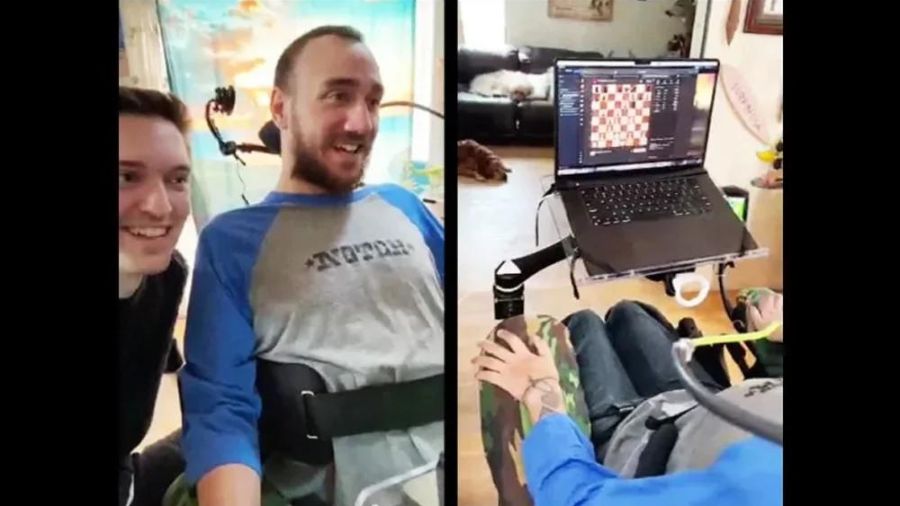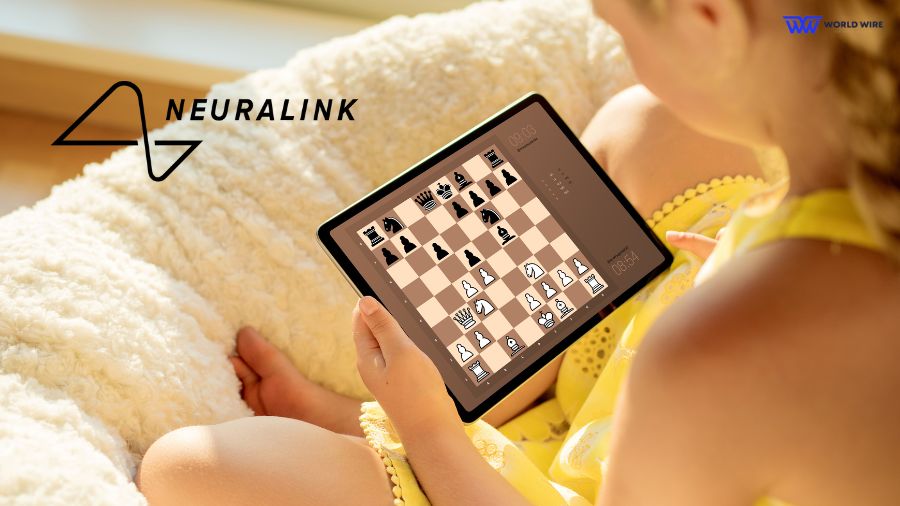Musk previously asserted that the company, Neuralink Corp, will initially deal with patients who have significant physical disabilities like quadriplegia or dysfunction of the cervical spinal cord.
On Wednesday, Elon Musk’s Neuralink Corp. live-streamed an update with its first patient who had a brain implant.
Eight years ago, Arbaugh, 29, claimed to have had a “freak diving accident” that left him with a spinal cord injury and paralyzed below the shoulder.
Now, 29-year-old patient Noland Arbaugh can play online chess and video games with his mind. The business implanted Arbaugh in January, and as a first neuralink user, he could control the mouse with thoughts.
Regarding the implant process, Arbaugh stated, “The surgery was super easy,” in a live video on Musk’s social media platform X.
Arbaugh added, “I literally was released from the hospital a day later. I have no cognitive impairments.”
Arbaugh noted, “I had basically given up playing that game,” alluding to Civilization VI, and asserted, “You all (Neuralink) gave me the ability to do that again and played for 8 hours straight.”
Speaking more about his experiences with the new technology, Arbaugh stated that they “have run into some issues” and that it is “not perfect.”
He stated, “I don’t want people to think that this is the end of the journey, there’s still a lot of work to be done, but it has already changed my life,”

According to Kip Ludwig, the former director of the U.S. National Institutes of Health’s neural engineering program, Neuralink’s achievements did not represent a “breakthrough.”
He stated, “It is still in the very early days post-implantation, and there is a lot of learning on both the Neuralink side and the subject’s side to maximize the amount of information for control that can be achieved.”
Nevertheless, Ludwig stated that the patient’s ability to interact with a computer in a manner they could not before the implant was a good development.
He stated, “I’m happy for the individual that he’s been able to interface with a computer in a way he wasn’t able to before the implant,”
He added, “It’s certainly a good starting point,”
There are other companies developing brain devices besides Neuralink.
Current examples of thought-based cursor control have been shown on other human patients with different kinds of implants, such as those used by the BrainGate consortium of research institutions and hospitals.
In contrast to other devices, the Neuralink device has more electrodes, which suggests that it may have more potential uses in the future.
On Wednesday, Musk also alluded to the device’s potential for vision restoration in a post on X, previously known as Twitter. He wrote, “Blindsight is the next product after Telepathy,”







Add Comment